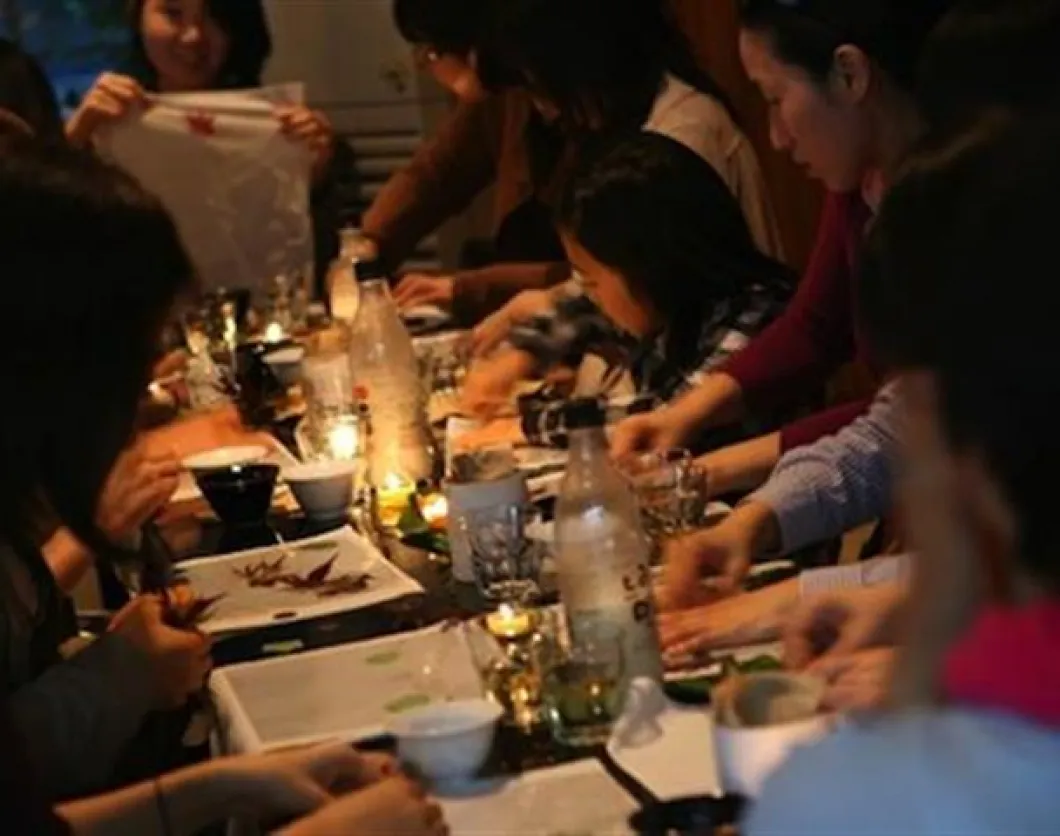When Zipcar started their car sharing service in 2000, the whole concept seemed remote to many people. Seeing an opportunity, the founders of Airbnb took this peer-to-peer approach in a way that no one else had anticipated. They took the idea of booking accommodation to a whole new level where clients would be allowed to book and rent a room or a house from a total stranger.
Uber soon followed suit and the concept of sharing economy is now a massive trend. This peer-to-peer approach, made famous by Airbnb has proved a major hit that is practiced world over. This has in turn inspired a meal sharing trend, known as peer-to-peer dining. Analysts from Euromonitor International say that this is the trendiest and biggest concept to embrace nowadays.
What exactly is Peer-to-Peer Dining?
Peer-to-Peer dining is a concept that follows in the footpaths of 'home sharing' or 'car sharing’ companies. That is why websites that offer the services have been called; "The Airbnbs of home-cooked meals." It is an entirely revolutionary model that allows you, as a local, to open your home and invite strangers to come enjoy, and sometimes prepare home-cooked meals for a small fee.
Just like in the case of Airbnb, websites that offer these amazing services list themselves as communities where users can interact, buy, sell and share their food-related experiences. In a simpler term, peer-to-peer dining is a concept based on sharing homemade meals with strangers for money.
How Does It Work?
There is obviously a host of websites that are running this intriguing concept of meal sharing. Websites such as Traveling Spoon, VizEat, Bookalokal, Feastly, Mealsharing and EatWith follow a similar principle. You are required to sign up either as a guest or a host depending on your preference. For instance, if you are interested in enjoying homemade meals prepared by strangers, then you might want to register as a guest. On the other hand, you can also register as a cook if you love cooking and would want strangers to enjoy your homemade meals.
Signing Up as a Guest
Guest section is for persons with sumptuous appetite. In this regard, peer-to-peer dining sites allow you to create a profile as a guest where you can put all your relevant information. This is followed by finding a host, or a cook for that matter, who you would prefer to eat with and book a reservation. Many sites such as Traveling Spoon and Mealsharing can also give you the opportunity of noting the kind of experience you are looking for, the dates you would prefer to dine and even the city so as to make it easy for you to choose from a plethora of distinguished cooks.
Signing Up as a Cook
This part may be harder. You may be having an immense love for cooking special dishes that strangers would love, but it takes more than that to be accepted in these websites. In most cases you will be required to sign up, create a profile and add pictures of samples and both your cooking and dining experiences. The sites are likely to ring up their potential cooks or hosts through Skype where there will be interviews and at times, in-person verification.
For example, EatWith only accepts around 4% of their applicants. In this website, potential cooks are required to send snapshots of cooked dishes for sampling, their kitchens and living spaces, as well as nice films clarifying why they want to be hosts. This is then followed by a thorough interview through Skype that is accompanied by a dinner demo with a member from EatWith.
On safety terms, these websites have a thorough vetting process for their cooks as well. Some sites are known to carry out in-person verification to ensure that the host's home is clean and safe for any peer-to-peer dining experience. Other sites employ the power of reviews where a host builds his/her reputation based on reviews from former guests.
Safety and Legality of Peer-to-Peer Dining
As either a guest or a cook, you may be holding out on peer-to-peer dining concept based on its safety and legality issues. The truth is, this is a legal concept that only requires all stakeholders to play by the rules that are set depending on your location. A reputable travel analyst from Euromonitor International, Angelo Rossini, pointed out that there can be never major legal issues with peer-to-peer dining because it is similar to dining with friends in your home and not like running a restaurant, which would in essence, need health code authorizations.
On the same note, this concept has not interfered with business of the hotel or restaurant industry in a way that would attract lawsuits. According to websites such as EatWith, VizEat and Bookalokal, their users have never had legal issues with authorities or any food-borne illness. In any case, they offer insurance that cover any damage or illness.
A List of Peer-to-Peer Websites to Start from
EatWith - It is available worldwide in more than 150 cities. It has more than 500 cooks who are thoroughly vetted and verified. Dining experiences are chosen by the hosts.
VizEat - Accounts for around 1000 cooks and hosts in more than 50 countries.
Bookalokal - Have in excess of 500 cooks and hosts in 46 countries worldwide. Hosts are vetted in person and are given power of choosing meal experiences.
Mealsharing - It is a worldwide platform offering peer-to-peer dining experience in more than 450 cities around the world. Hosts are verified through phone number and are given the power to choose meals.
Traveling Spoon - Mostly available in Asian countries and offer both dining and cooking experiences. Hosts are vetted in person.
Feastly - It is available in four cities across the U.S. but tremendously growing. Hosts are vetted personally and given the power to choose meal experiences. Hosts can be insured for up to a million dollars.










